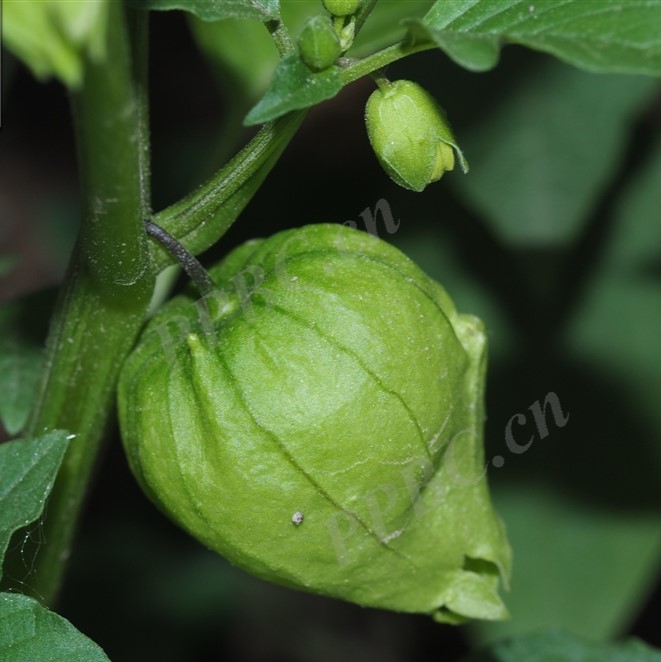Physalis pubescens
Overview
| Genus | Physalis |
| Species | pubescens |
| Common Name | Hairy ground-cherry |
| Abbreviation | P. pubescens |
| Ploidy | - |
| Chromosome Number | 2n = 4x = 48 |
| Genome Size | 1400 Mb |
| Genome Assemblies | 1 |
| Cross Reference | NCBI taxon: 300354 |
Organism Image

Description
Physalis pubescens is a species of flowering plant in the nightshade family known by many common names, including husk tomato, low ground-cherry and hairy groundcherry in English, and muyaca and capulí in Spanish. It is native from Brazil, but also found in southern half of the United States, Mexico, Central and much of South America. It can be found elsewhere as an introduced species and sometimes a weed. It can grow in many types of habitat, including disturbed areas. This is an annual herb producing a glandular, densely hairy stem up to about 60 cm (24 in) in maximum height from a taproot. The oval or heart-shaped leaves are 3–9 cm (1.2–3.5 in) long and have smooth or toothed edges. The flowers blooming from the leaf axils are bell-shaped and about a centimeter long. They are yellow with five dark spots in the throats, and have five stamens tipped with blue anthers. The five-lobed calyx of sepals at the base of the flower enlarges as the fruit develops, becoming an inflated, ribbed, lanternlike structure 2–4 cm (0.79–1.57 in) long which contains the berry.
Whole Genomes
Whole Genome Sequences & Annotations for Physalis pubescens
S genes
Physalis pubescens gwh_assembly P. floridana S genes
| Query | Contig | Size(bp) | Coordinates | BLASTn Hit | BLASTn %ID | Domain |
| SLF18 | GWHANUX00000009 | 119292386 | 8210963-8209851 | Solanum tuberosum DM8.1, SLF18 | 82.379 | F-box domain |
| SLF19 | GWHANUX00000011 | 126490988 | 11832337-11831225 | Solanum tuberosum DM8.1, SLF19 | 87.928 | F-box domain |
Downloads
The Physalis pubescens S gene sequences are available in FASTA format.
| CDS and Protein (FASTA file) | S-gene_Physalis_pubescens |
Publications
Lu J, Luo M, Wang L, Li K, Yu Y, Yang W, Gong P, Gao H, Li Q, Zhao J, Wu L, Zhang M, Liu X, Zhang X, Zhang X, Kang J, Yu T, Li Z, Jiao Y, Wang H, He C. The Physalis floridana genome provides insights into the biochemical and morphological evolution of Physalis fruits. Hortic Res. 2021 Nov 18;8(1):244. doi: 10.1038/s41438-021-00705-w.